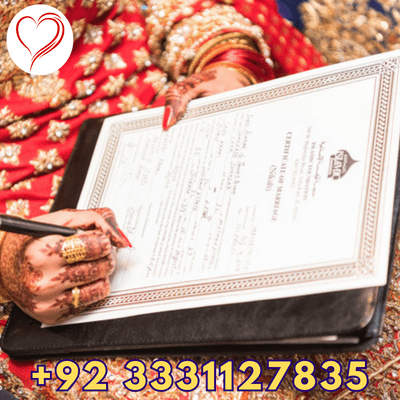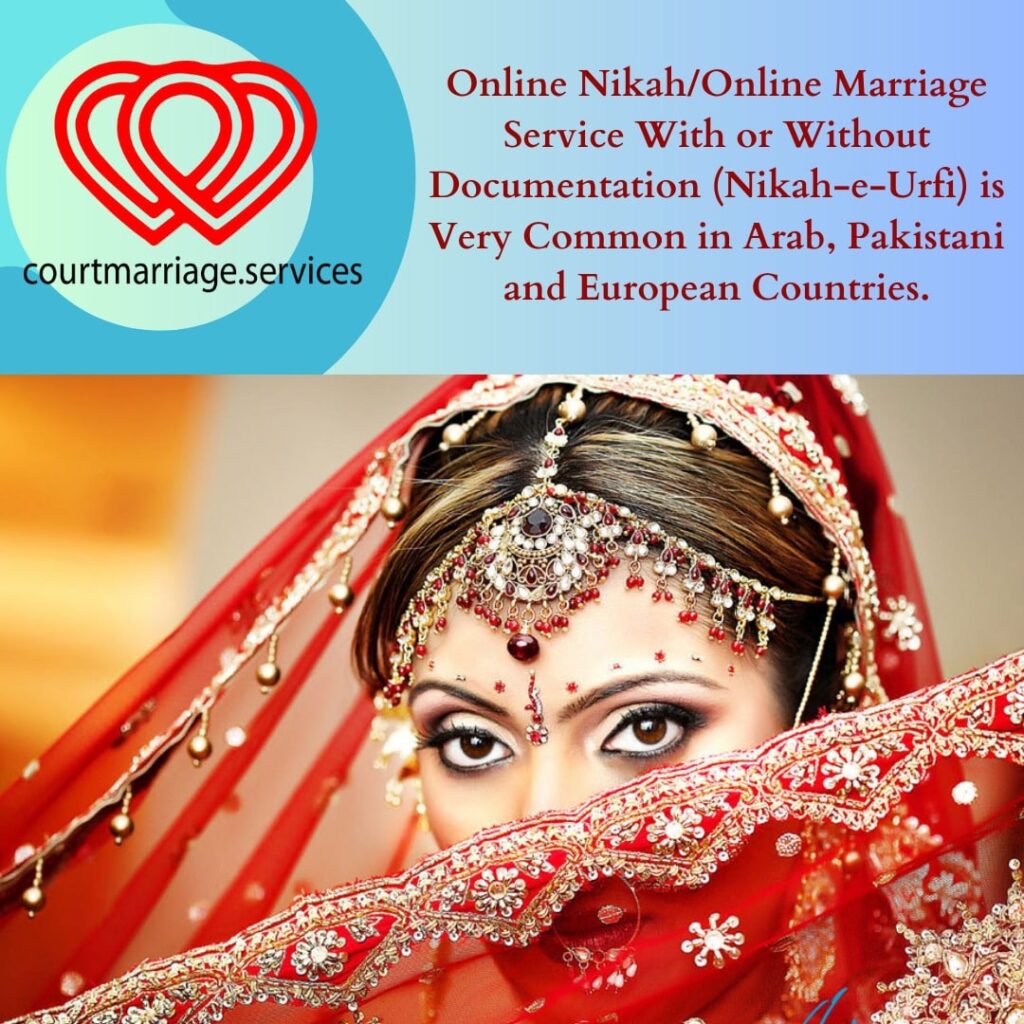Welcome to Our Court Marriage Services
Welcome to CourtMarriagePk, your trusted partner for hassle-free court marriage services in Pakistan. We understand that choosing the path of court marriage can be a significant decision in your life, and we are here to guide you through every step of the process
Court Marriage Services Tailored to Your Needs
At CourtMarriagePk, we offer a comprehensive range of court marriage services designed to meet your specific requirements. Whether you are a Pakistani citizen, a foreign national, or a non-Muslim seeking court marriage, our experienced team is well-equipped to handle all aspects of the procedure.
Why Choose Court Marriage?
Are you considering court marriage in Pakistan? Discover why many couples opt for this straightforward and legal method of solemnizing their union.
Professional Guidance Every Step of the Way
Our team of legal experts and experienced professionals will walk you through the court marriage process, ensuring that all legal requirements are met. We take care of the paperwork so you can focus on the joyous occasion of starting your life together.
Transparent Fees and Charges
We understand that transparency is essential when it comes to financial matters. At [Your Company Name], we offer transparent and competitive pricing for our court marriage services. You’ll know exactly what to expect regarding fees, with no hidden costs.
Contact us today to learn more about how we can assist you in making your court marriage a smooth and memorable experience.
Legal Validity
One of the primary advantages of court marriage is its legal validity. When you choose court marriage, your union is recognized and protected under the law, giving you and your partner legal rights and responsibilities.
Simplicity and Efficiency
Court marriages are known for their simplicity and efficiency. Unlike traditional weddings, which can be elaborate and time-consuming, court marriages are relatively quick and straightforward. This means you can start your life together without unnecessary delays.
Cost-Effective
Court marriages are typically more cost effective than traditional weddings. There’s no need for lavish ceremonies or expensive receptions. This can be particularly advantageous for couples looking to save money or prefer a more modest celebration.
Privacy and Confidentiality
Court marriages are conducted in a private and confidential setting. This can appeal to couples who value their privacy and don’t want a public ceremony. It also reduces the risk of unwanted interference or objections.
Non-Discriminatory
Court marriage is available to all couples, regardless of religion, nationality, or background. This inclusivity makes it a popular choice for interfaith couples or those with diverse cultural backgrounds.
Court marriage offers legal validity, simplicity, cost-effectiveness, privacy, and inclusivity. These advantages make it a preferred choice for couples who want a hassle-free and legally recognized union.
Eligibility Requirements for Court Marriage
Before proceeding with your court marriage, it’s essential to understand the eligibility requirements that must be met to ensure a smooth and successful process.
Age Eligibility for Court Marriage
One of the most critical eligibility criteria for court marriage is the age of the individuals involved. In Pakistan, the legal age for marriage is 18 years for males and 16 years for females. Both parties must meet these age requirements to be eligible for court marriage.
Mental Capacity
Both individuals must be of sound mind and capable of understanding the implications of marriage. This ensures that the decision to marry is made willingly and without coercion.
Marital Status
Individuals seeking court marriage must be single and not already married. If either party has been previously married and divorced or widowed, proper documentation proving the dissolution of the previous marriage must be provided.
Consent
Consent is a fundamental requirement for court marriage. Both parties must willingly consent to the wedding without external pressure or coercion. Consent cannot be forced or obtained through fraud

Absence of Prohibited Relationships
Court marriage is not allowed between close blood relatives. Parties seeking court marriage must not be within the prohibited degrees of relationship as defined by the law.
Religious and Nationality Requirements
Court marriage is available to individuals of all religions and nationalities. It is not restricted to any particular faith or citizenship.
Meeting these eligibility requirements is crucial to ensure that your court marriage proceeds smoothly and is legally valid. If you have any questions or concerns about your eligibility, it’s advisable to seek legal guidance.
Documentation Required for Court Marriage
When pursuing a court marriage in Pakistan, it’s essential to gather the necessary documentation to comply with legal requirements. Proper documentation ensures that the court marriage process proceeds smoothly and that your marriage is legally recognized.
Standard Documents Required for Court Marriage
National Identity Cards (CNICs): Both parties must provide their original CNICs as proof of identity.
Passport-Sized Photographs: Recent passport-sized photographs of both individuals are typically required for documentation.
Proof of Marital Status: If either party was previously married, documents such as the previous spouse’s divorce or death certificates must be provided.
Residential Proof: Evidence of the current residential address, such as utility bills or rental agreements, may be necessary.
Affidavits: Both individuals may need to sign affidavits affirming their desire to marry each other willingly and without coercion.
Witnesses: Witnesses with their CNICs and photographs are often required to testify to the identity and consent of the marrying parties.
NOC for Foreign Nationals: A No Objection Certificate (NOC) from their respective embassies or consulates may be necessary if one or both individuals are foreign nationals
Additional Documentation for Non-Muslim Court Marriage
For non-Muslim court marriages, additional documentation may be required, depending on the religious background of the individuals involved. This can include baptism certificates, conversion certificates, or affidavits confirming the intention to marry under Christian or other religious traditions.It’s essential to consult with a legal expert or the relevant authorities to ensure you have all the necessary documentation for your specific case. Failing to provide the required documents can lead to delays or complications in the court marriage process
The Court Marriage Process in Pakistan
The court marriage process in Pakistan is designed to be a straightforward and legally recognized way for couples to solemnize their union. Here’s a step-by-step guide to help you understand the process:
Eligibility Check
Before proceeding with court marriage, ensure that both individuals meet the eligibility criteria outlined earlier. This includes age, mental capacity, marital status, consent, and absence of prohibited relationships.
Document Gathering
Collect all the necessary documents, such as CNICs, photographs, proof of marital status, residential proof, affidavits, and any additional documents required for non-Muslim marriages.
Legal Consultation
Consider seeking legal consultation to ensure you have all the required documents and to better understand the court marriage process.
Appointment with the Union Council
Contact the local Union Council office to schedule an appointment for your court marriage. The Union Council is responsible for registering
Age Restrictions for Court Marriage
In Pakistan, age restrictions are crucial in determining eligibility for court marriage. Understanding these age requirements is essential before embarking on the court marriage journey.
Minimum Age for Court Marriage
The minimum age for court marriage in Pakistan varies based on gender. The legal minimum age for males is 18 years, while for females, it is 18 years. Both parties must meet these age requirements to be eligible for court marriage.
Age Verification
To comply with age restrictions, individuals must provide proof of their age, typically in the form of their Computerized National Identity Card (CNIC) or other government-issued identification documents. The court and authorities will verify this information during the registration process.
Exceptions
In exceptional cases, a court may grant permission for a marriage involving individuals below the legal age, provided there are compelling reasons, and the court deems it in the best interest of the parties involved.
Step-by-Step Guide to Court Marriage
Embarking on the journey of court marriage can be made easier by following a step-by-step guide. Here’s a comprehensive overview of the process:
Step 1: Eligibility Check
Ensure both parties meet the age and other eligibility criteria.Gather the required documentation, such as CNICs, photographs, and proof of marital status.
Step 2: Legal Consultation
Consider seeking legal consultation to understand the process and requirements better. Get guidance on any additional documentation required, especially for non-Muslim court marriages.

Step 3: Appointment with the Union Council
Contact your local Union Council office to schedule an appointment.
Union Councils are responsible for registering court marriages.
Step 4: Visit the Union Council
Attend the scheduled appointment with all required documents and witnesses.
Both parties will be interviewed separately to confirm consent and identity.
Step 5: Marriage Certificate
After verification, the Union Council will issue a court marriage certificate.
This certificate legally recognizes the marriage.
Legal Process of Court Marriage
Court marriage involves a legal process that ensures the marriage is officially recognized. The steps include:
Application: Both parties visit the Union Council office and apply to court marriage.
Verification: The Union Council verifies the identities and eligibility of both individuals.
Interview: Both parties are interviewed separately to confirm their consent and understanding of the marriage.
Witnesses: Witnesses present at the ceremony sign the marriage register.
Registration: Once all requirements are met, the Union Council registers the marriage and issues a court marriage certificate.
Legal Recognition: The court marriage certificate legally recognizes the marriage under Pakistani law.
Witnesses in Court Marriage
Witnesses play a vital role in court marriages, providing testimony to the validity of the wedding. Here’s what you need to know about witnesses in court marriage:
Role of Witnesses
Witnesses attend the court marriage ceremony and sign the marriage register to confirm that they were present and that the wedding took place.
Witness Requirements
Witnesses must be adults, typically 18 years or older.
They should have valid identification, such as CNICs.
Witnesses should not be blood relatives of the marrying parties.
Number of Witnesses
The number of required witnesses may vary by location or Union Council. Typically, two witnesses are sufficient for court marriage, but confirming the specific requirements with the Union Council beforehand is advisable.
Fees and Charges for Court Marriage
Understanding the fees and charges associated with court marriage is essential to plan your budget effectively. Here’s an overview of the costs involved:
- Union Council Fee: The Union Council charges a fee for processing and registering court marriages. This fee can vary by location but is typically reasonable.
- Legal Consultation: If you seek legal consultation, fees may be associated with legal advice and assistance during the process.
- Documentation Costs: Expenses for obtaining and preparing necessary documents, such as CNICs and photographs.
- Administrative Expenses: Miscellaneous expenses like transportation, photocopying, and notary fees may also apply.
It’s advisable to inquire about the specific fees and charges with your local Union Council or legal advisor to ensure you clearly understand the costs involved in your court marriage.
Court Marriage for Non-Muslims
Court marriage services in Pakistan are not limited to Muslims; they are open to individuals of all faiths and backgrounds. Here’s what you need to know about court marriage for non-Muslims:
Inclusivity
Court marriage is a legally recognized and inclusive option for individuals from diverse religious backgrounds, including Christians, Hindus, Sikhs, and others.
Religious Ceremonies
While court marriage provides legal validity, individuals from non-Muslim backgrounds may choose to complement it with traditional religious ceremonies according to their faith.
Documentation
Non-Muslim individuals may need to provide additional documentation, such as baptism certificates, conversion certificates, or affidavits affirming their faith and intention to marry under their respective religious traditions.
Legal Recognition
Court marriage provides legal recognition and protection under Pakistani law regardless of religious affiliation.
Non-Muslims can enjoy the benefits of court marriage while also celebrating their union by their religious beliefs and traditions.
Court Marriage for Foreign Nationals
Court marriage services in Pakistan are available to foreign nationals, making it a viable option for international couples. Here’s what foreign nationals need to know:
Documentation for Foreign Nationals
Foreign nationals should have valid passports and visas to stay in Pakistan legally.
They may need a No Objection Certificate (NOC) from their respective embassies or consulates.
Legal Recognition Abroad
Court marriages in Pakistan are internationally recognized. However, couples should check with their home countries’ authorities to ensure the marriage is valid in their home country.
Language and Translation
Translate and notarization may be necessary for legal purposes if documents are not in English.
Witnesses
Foreign nationals can have witnesses who are either Pakistani or from their home country as long as they meet the witness requirements.
Court marriage is an accessible option for foreign nationals who wish to marry in Pakistan, provided they comply with the necessary documentation and legal requirements

Registration of Court Marriage
Registering your court marriage is a critical step to ensure the legal validity of your union. Here’s what you need to know about the registration process:
Union Council Registration
The Union Council is responsible for registering court marriages. You will need to schedule an appointment with your local Union Council office.
Interview Process
You and your partner will be interviewed separately to confirm your identities, consent, and understanding of the marriage.
Witnesses
Witnesses at the ceremony will sign the marriage register to confirm the marriage’s validity.
Court Marriage Certificate
Once all requirements are met, and the Union Council is satisfied, they will issue a court marriage certificate. This certificate legally recognizes your marriage under Pakistani law.
Ensuring proper registration of your court marriage is crucial to enjoying all the lega
Frequently Asked Questions (FAQs) about Court Marriage
What is a Court Marriage?
Court marriage refers to a legal process of getting married in a court of law rather than through a traditional religious or cultural ceremony. It is a straightforward and legally recognized way to solemnize a union.
Why Choose Court Marriage?
Court marriages offer legal validity, simplicity, cost-effectiveness, privacy, and inclusivity. It’s a preferred choice for couples who want a hassle-free and legally recognized union
What Are the Age Requirements for Court Marriage?
In Pakistan, the legal minimum age for court marriage is 18 years for males and 16 years for females. Both parties must meet these age requirements to be eligible
What Documents Are Required for Court Marriage?
The required documents typically include CNICs, passport-sized photographs, proof of marital status (e.g., divorce or death certificates if applicable), residential proof, and affidavits if necessary.
Do I Need Witnesses for Court Marriage?
Yes, witnesses play a vital role in court marriage. Typically, two adult witnesses are required to confirm the marriage’s validity by signing the marriage register.
Is Court Marriage Available for Non-Muslims?
Court marriage services in Pakistan are inclusive and available to individuals of all religions, including Christians, Hindus, Sikhs, and others
Can Foreign Nationals Get Married through Court Marriage in Pakistan?
Yes, court marriage services are accessible to foreign nationals, provided they have valid passports and visas, and may need a No Objection Certificate (NOC) from their respective embassies or consulates
How Long Does the Court Marriage Process Take?
The timeline can vary based on factors such as location and document availability. In general, the process can be completed in a matter of weeks or even sooner
Is a Court Marriage Legally Recognized?
Yes, court marriages in Pakistan are legally recognized both domestically and internationally. However, couples should check with their home countries’ authorities to ensure recognition there.
What Happens After the Court Marriage Ceremony?
After the ceremony and successful registration, the Union Council will issue a court marriage certificate, which serves as legal proof of your marriage. You can then enjoy the rights and responsibilities of married life.
Do I Need Legal Consultation for Court Marriage?
While legal consultation is not mandatory, it can be beneficial to seek guidance from a legal expert or advisor to ensure that you meet all requirements and understand the process thoroughly.
